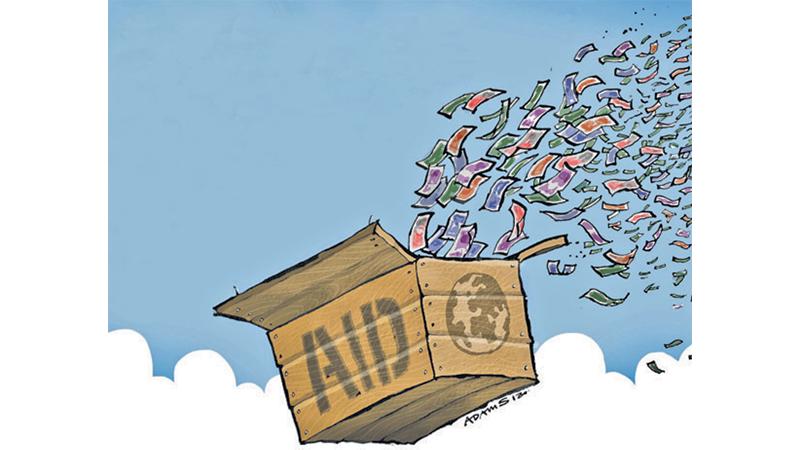
Sri Lanka’s unprecedented economic crisis due to once-in-a-century global pandemic is now well recognised. Due to the depletion of foreign exchange reserves, the Government was compelled to drastically control the import of daily essentials. Results of these short-term measures are now obvious with the shortage of many daily essentials and exchange rate adjustment increasing the prices in several hundred folds.
Given the situation, the Government leadership has been compelled to seek short- and medium-term assistance from all likely sources, countries as well as international and regional institutions. At the beginning of the Gotabaya administration, attempts were made to avoid seeking assistance from the IMF (International Monitory Fund), as 17 such previous programs failed to complete while the effectiveness of those programs have been questionable.
Therefore, the advice to the Government has been to introduce steep cuts in imports as a short-term measure and to introduce far-reaching economic reforms including the restructuring of State-owned enterprises (SOE). If the economic reform measures were implemented, it was estimated that US$ 8 – 10 billion could have been generated while at the same time attracting much-needed foreign direct investment.
Friendly sources
The key issue being addressed in this article is the Government seeking the assistance of other friendly sources, especially India, World Bank, and ADB to meet the import requirements of daily essentials including fuel, medicine, gas and food items. Now we see that good Samaritans are offering credit line conditions which are yet to be made public. Also, the Government has approached traditional donors such as Japan, while China has reiterated its willingness to provide similar facilities to reduce the pain on the people.
There is no doubt that everyone in the country including the political leadership will be pleased to utilise such offers. Of course, in such a situation, genuine businesses, that have been battered since pandemic-related lockdowns too will be delighted to see the appearance of such good Samaritans.
Undoubtedly, foreign and local rent seekers and commission agents also see such emergency procurements as an opportunity to make deals and push through foreign-funded projects and programs hitherto unwelcomed by the Government. When Sri Lanka is compelled to seek credit facilities from our friends, in those countries too business interest is lining up for profitable opportunities. Of course, we all should be aware that there are no free lunches.
Every credit line or swap arrangement from most, if not all, friendly sources are tied to procurement primarily from the so-called donor country. As the crisis deepens, there are many shortages resulting in longer queues and almost all the procurements are processed on an emergency basis. Proper and transparent procurement processes can be easily avoided as it appears that leaders of both sides of Parliament and media are rarely raising concerns regarding the processes and procedures.
It is also reported that some of our friendly countries that have been approached for foreign exchange facilities while showing their readiness to help ailing Sri Lanka, is pressurising the Government at the highest levels to renew their interest on some of the loan-funded (further foreign debt creating) projects with little or no economic benefit even in the long-term. Some of these projects will add to the continued bleeding of state-owned enterprises (SOEs).
Critical roles
Unfortunately, lobbying for such projects is not solely from the foreign donors but even local vulturous deal makers too are playing critical roles in this regard. In summary, while the ailing Sri Lankan economy is in the intensive care unit, these vultures are in their habitual game of sucking the blood and eating the flesh.
Of course, some of these project funding is justified based on their relatively long-term repayment. This, however, means that the country will be further entangled in debt-traps beyond the lifetime of these vulturous rent-seekers.
